Meet the young Zulu girl behind the lens, Nondumiso Shange. Born in KwaZulu-Natal but thriving in Johannesburg, her roots run deep in tradition as her heart beats to the rhythm of Joburg’s bustling streets. “Both of my parents are Zulu, but I moved to Joburg when I was about three years old,” she explains. “So, I would say I’m like a Joburg girl. When people ask, I say I was born in KZN, but I’m really from Joburg because I’m accustomed to the culture. Joburg and the people of Joburg are more familiar to me than Durbanites, even though that is home. And I love Durban!” Nondumiso Shange is 23 years old, embracing her “Jordan year” with grace and ambition. “I would like to be introduced as a black woman living in South Africa, who’s also a multidisciplinary artist,” she expresses with pride. “My main medium is photography, but I will become a film director. One day, everyone’s going to see my name in Hollywood.” Despite her diverse artistic pursuits, she’s not your typical art student. “In terms of my personality, I’m a very outgoing person and an extrovert. My mom likes to say that I like things, ‘uthandi’zinto!’ And I think my liking things has gotten me to this point because I’m not studying for an arts degree. I am studying for a BCom degree.”
I was shocked that Shange is a commercial girlie and she responded with laughter. Sharing that many people probably feel that her degree is an unconventional choice. “Yeah, I know,” she chuckles. “I used to stay in Pretoria, but this year I only had one module to complete to get my qualification. So I was like, okay, I can stay at home. I have one more thing to do, and then I’ll have that degree. I don’t think I’m gonna use it. But it’s nice to have a degree.” Her journey may not follow the traditional path, but it’s one marked by ambition and a unique perspective. I let her know that she’ll probably find that her degree will help her in ways she wasn’t expecting to use it in. And that it will make her a very business-savvy superstar filmmaker. “Exactly,” she nods. “And I think I find that when it comes to the business side of things with regards to creatives, the thinking is very narrow-minded because that’s not exactly what they teach in art school. They don’t necessarily go into that business aspect of things. Now I can see, okay, this person is trying to scam me or this is a fair deal. Little things like that, I think that has helped me in that essence.” As the conversation unfolds, her anticipation for what lies ahead is palpable. “I’m so impatient to graduate and I know my parents are going to want to celebrate me but I’m at the point where I just want to get it done. And hopefully, instead of spending money on a graduation dress or whatever, I can go overseas.”
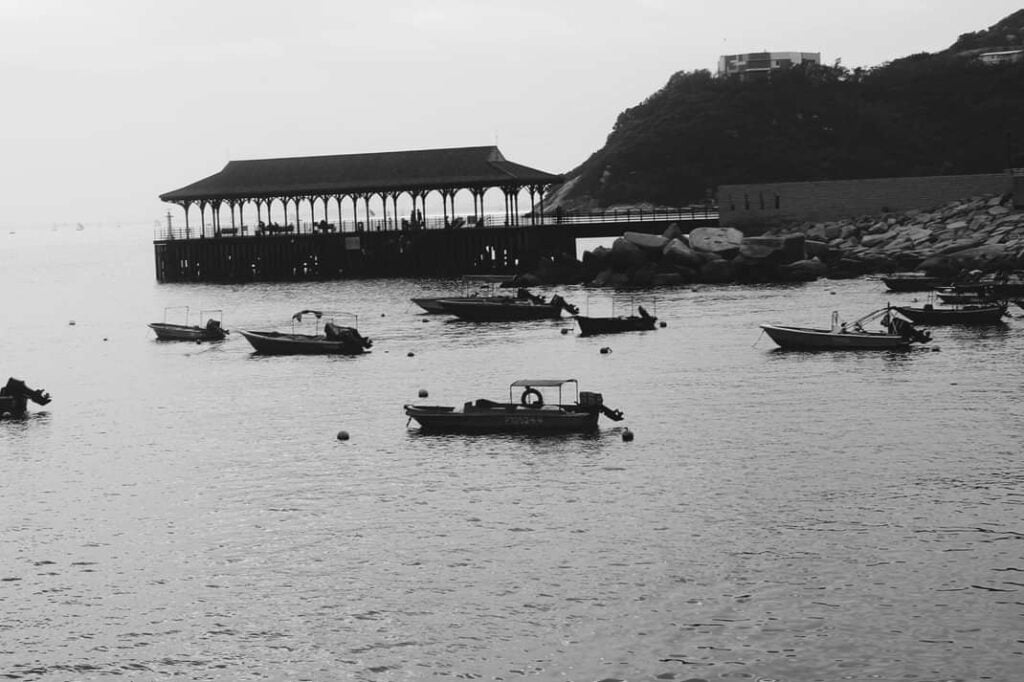
Nondumiso’s love for visual art is marked by a deep-seated passion for photography and film and has its roots in the fondest memories of her childhood. “Growing up, I would use my Nintendo DS to take photos of my little brother or my sister,” she shares with a hint of nostalgia. “We were in the Drakensberg mountains, and I’d upload pictures of my family to my Facebook. In retrospect, why would I have Facebook at that age? I was like seven to 10 years old. Like why didn’t my parents allow that?” she laughs,” But yeah, I’ve always loved to capture stuff, myself, or like just little memories on holidays. I’ve always had a knack for this.” Her artistic inclination extended beyond personal moments. “I think it’s interesting because also in primary school and high school, I would bring my camera to school, and I’d be like, guys, let’s take photos,” she recalls. “And I’d always be the one like, behind the camera taking photos of my friends. Even when we went on school tours, I have a whole photo album on my Facebook dedicated to that tour. It’s literally just an archive of my old work.” When I asked how her parents honed this love and skill for photography, she candidly shared, “They saw that I had a love for photography but I wouldn’t necessarily say my loved ones nurtured photography.”
“I love my parents, but they have this mindset that people in the arts tend to fail easily or it’s a bit rougher for people in the arts. They pushed me more towards a safer and more stable academic journey. Hence, the BCom degree.” Despite the academic direction set by her parents, her innate creativity couldn’t be suppressed. Her creative journey extends beyond the borders of South Africa, drawing inspiration from diverse corners of the world. During the pandemic, she discovered a deep fascination with Korean culture, “I started to get more and more into Korean dramas and K-pop,” she shares. “I wouldn’t just watch the ‘mainstream stuff. I would watch your big directors, for example, the director of Parasite, Bong Joon-ho. I would watch a movie like that and I was like, ‘Whoa, this is amazing work.’ That gained recognition at the Oscars and I saw that somebody from overseas could gain recognition in a North American space. And I thought I could do that in the South African context. Like how South Koreans like to produce their work and embrace their own culture. I feel like that is something that can be done in South Africa with just the right connections, the right quality of work and the right person behind it. And I think somebody like me can not open the space up, but maybe branch into it and maybe expand it even more to a point where people from overseas are watching South African films or cinema series and thinking, ‘Oh, okay, I really wanna come to South Africa.’ So, I thought, That was cool about South Korea.”

Nondumiso acknowledges that South Africa is cooler and more vibrant than often portrayed. She attributes this misrepresentation to the tendency within the local art scene to hire people based on their network rather than their talent or suitability for the role. She advocates for a shift towards hiring new, lesser-known faces to tell the stories of the youth and showcase the real South Africa. In her eyes, Johannesburg, in particular, is a city brimming with creativity and untapped potential that can be explored through art. “If South Africa had that essence of “let’s hire new people, not someone that everybody knows and let’s tell new stories of the youth,” things would be very different. South Africa is incredibly cool, especially Joburg.”
I asked her who her creative influences are and her voice brimmed with admiration as she responded, “One of my favourite fashion photographers at the moment is Campbell Addy. He was actually on either Dazed or i-D because as was one of some influential photographers. And Lea Colombo. She’s a photographer from Cape Town and she’s worked with like all these amazing fashion houses, and her work is very good. And then also Tony Gum. I love Tony Gum’s work!” The intrigue of a possible collaboration emerges and I ask, “Have you ever worked with Tony Gum?” “No, never,” she responds, after which we manifest a future Shange x Gum collab. Shifting gears, our conversation drifts towards the world of cinema where Nondumiso shares that some of her favourite films include the classic City of God by Fernando Meirelles and Kátia Lund. “I don’t think horror is my genre, but I like Us by Jordan Peele,” she muses. “I respect John Peele’s work. And lastly…I always mention Wong Kar Wai from Hong Kong, and I feel like I should stop mentioning him now.” Laughter fills the space as our conversation takes a cinematic turn. And I tell her, “No, if he inspires you, then he inspires you! Anyone else? And just a side note, have you watched The Host?” “Yes, I enjoyed that,” she responds. “I also really enjoyed Train to Busan, which was directed by Yeon Sang-ho. When my sister and I were in Korea, we took a train to Busan, and it was so surreal.” At this point, we get sidetracked over our mutual love for Korean films.
As our conversation continues, we embark on a new exploration of the spaces and places she aspires to capture and share through her lens. “What are the spaces and places besides Joburg that you want to capture and share?” I ask. “So my mom’s hometown is Pietermaritzburg,” she shares warmly. “And the landscapes out there are so beautiful. My grandparents’ place is out there. Both of them have passed away, but my great-aunts still keep their house lovely. Shooting the scenery there would be extremely beautiful.”But her vision extends beyond mere landscapes. “Even capturing the people there or the factories out there. I would love to do documentary-type work out there, get to know people’s stories and branch more into politics. So, you know how China has come in and produced a lot of products?” I comment with “Yeah, there’s that new, big China HyperMarket in Pietermaritzburg.” “Yes,” she affirms. “So I want to know how that affected the people of Pietermaritzburg and what it’s like working in factories. Or what it’s like for those who have lost their jobs because a lot of factories have shut down because of the pandemic. I’d like to connect and document all of those little intricacies. Although I feel like the South African audience prefers action.”
The conversation takes a thoughtful turn as we discuss the state of content consumption in South Africa. We agree that we’re not being fed very varied content, we’re mostly being sold sex and cheating and drugs and money and then some action. If we were to listen to ordinary people and share their stories, I think a lot of people would want to hear them because that is relatable content for a lot of people in the country. With storytelling at the heart of her creative journey, the conversation naturally drifts towards its essence. “I think what I love the most about storytelling is getting to know different perspectives,” she responds thoughtfully. “Let’s say there’s this person that is a part of the African diaspora and they’re sitting in Europe — let’s say Switzerland— and they have no idea what is going on in South Africa. And then somebody like me or Enver Samuels tells a story of how South Africans have been brought up or how we’ve been living. They might feel a sense of empathy towards us. People are fed certain things about us on the news that don’t paint us in the best light. But when you see stories or pictures, you gain a sense of empathy through that storytelling. That is one of the reasons I love storytelling.”

Navigating the dynamic and often male-dominated creative industry, particularly in the bustling metropolis of Johannesburg, brings its own set of challenges. I asked Shange how she handles being a young black woman in the photography space and her response is a candid reflection of her experiences. “I think a lot of the time people have wanted to take advantage of me,” she begins. “In the sense of like, ‘Hey, can you work for free?’ I know I
have the talent, and I know I have the knack for things, and I know I have the hunger and the drive for it. So, in some instances, people will be like, ‘Hey, can you work for free?’ And there have been times where I’ve been like, okay, like once or twice, okay, let me work for free because this person’s gonna get me certain exposure that I wouldn’t have gotten even if I was doing a different shoot. I don’t recommend people work for free unless you have that support structure.”
She emphasises the importance of understanding one’s worth. “As I mentioned earlier, I have my parents; I have that support structure where I can be like, okay, I can work for free. Recently, I applied for the Samsung Hype Beast Culture Scouts project, and they are paying me a good amount. And this is what I deserve. You can’t pay rent with exposure, you can’t eat exposure in the long run. So, I don’t recommend working in exchange for exposure. Especially with women in the industry. There’s already an issue with the pay gap between women and men. And now you want me to work for free? In this economy? Nah, no.” I agree and close our conversation by asking Nondumiso what quote she lives by and what her future holds.

For the quote, she draws inspiration from a beloved childhood memory. “It’s from Another Cinderella Story with Hillary Duff,” she begins. “I remember this is like a cool memory of mine when I was younger, the first time I watched it. So, there was a guitar up on the diner wall that kept getting loose and loose, and then towards the end, it fell. And what was covered up was a quote, and the quote said, ‘Never let the fear of striking out keep you from playing the game.’ I always keep that in my head. I’m like, okay, if I fail, I fail. What happens next? I’m going to get up again and try again. If people don’t like my work, okay, whatever. I like it. It’s what is, but I’m going to keep producing content.” In terms of what to expect from her, “Like I said from the very beginning, guys expect me in big Hollywood movies. You know how at the beginning of a movie it’ll be like from director Nondumiso Shange and you’re going to see me shooting for magazines like Dazed and i-D.” You heard it hear first, remember the name, Nondumiso Shange!
With this resilient spirit, a relentless drive, and an unyielding commitment to her craft, Nondumiso continues to break barriers and chase her dreams, inspiring a new generation of artists along the way.
Follow Nondumiso Shange on Instagram here and support her work page here.
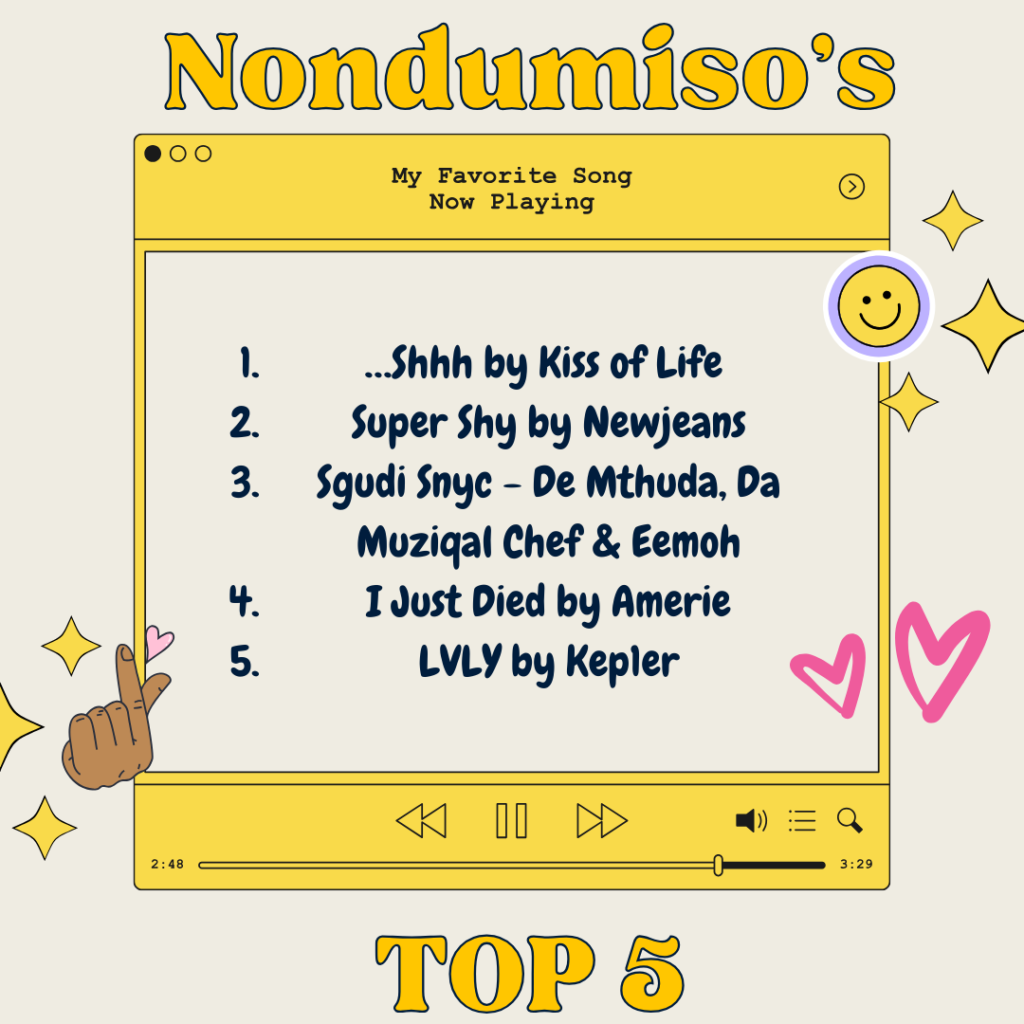
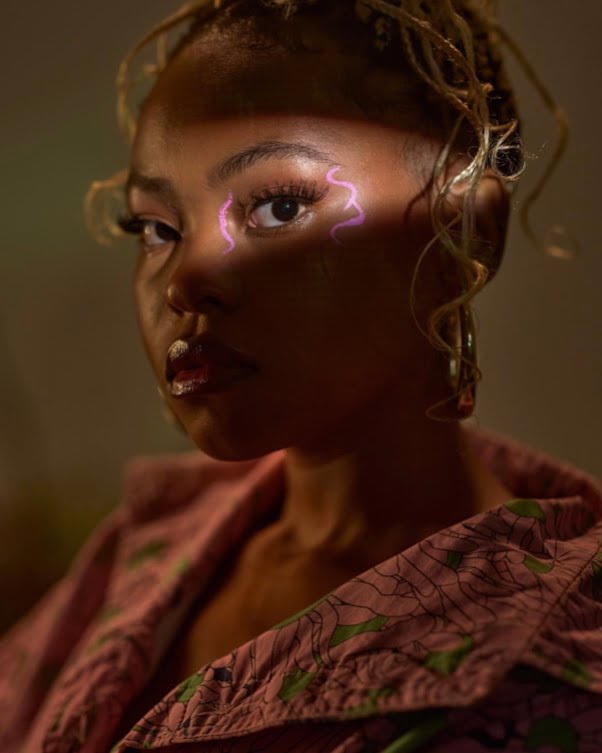
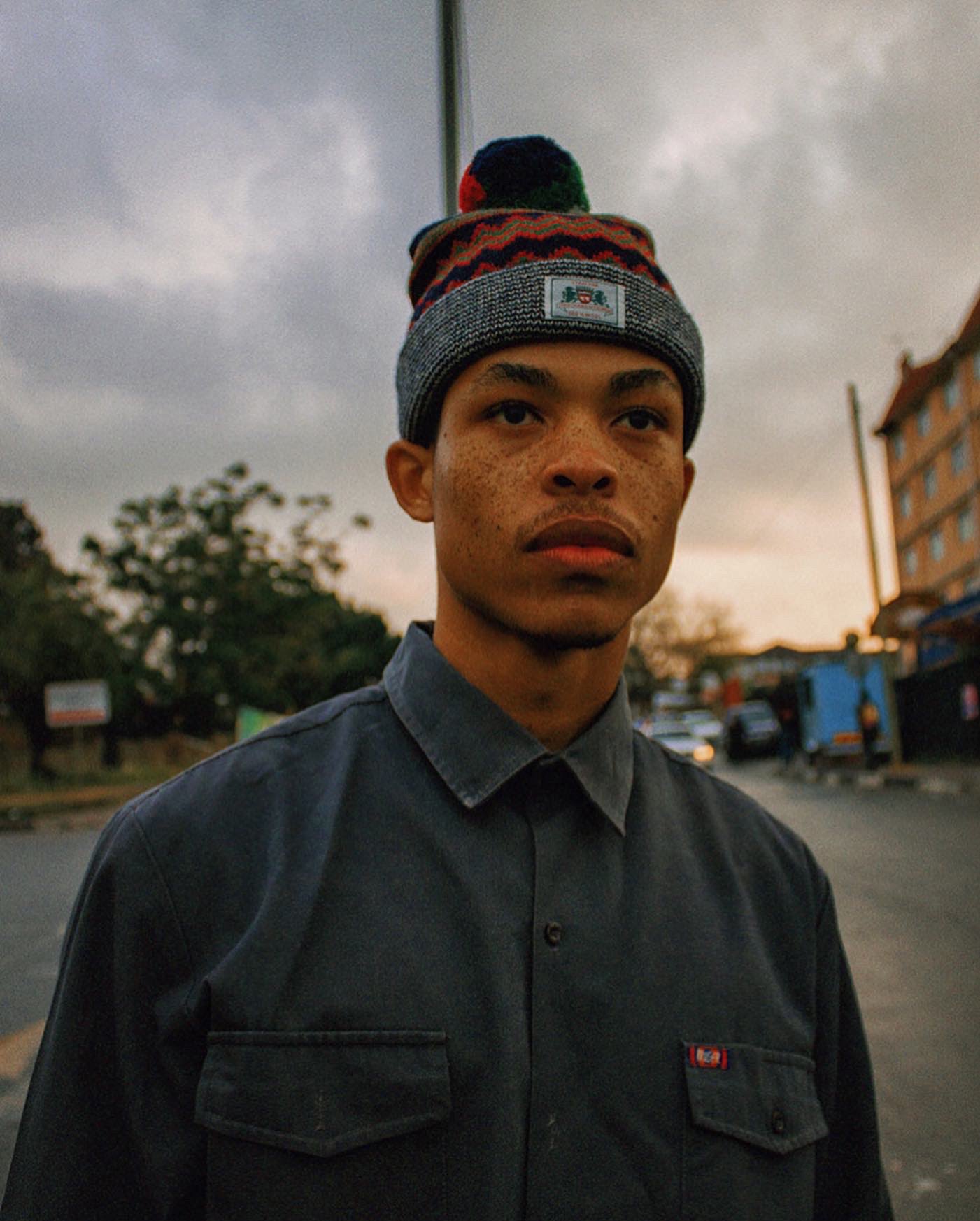
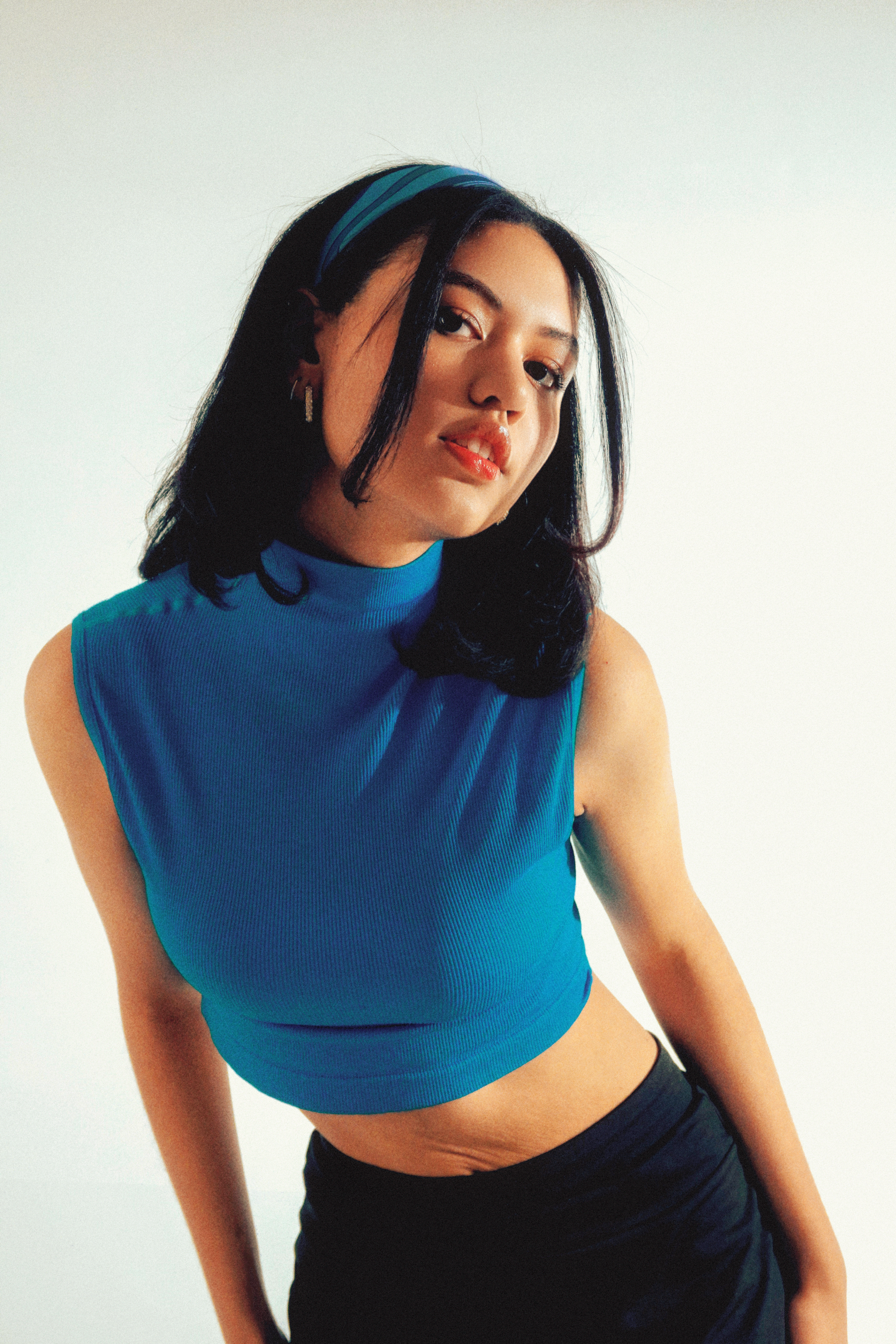
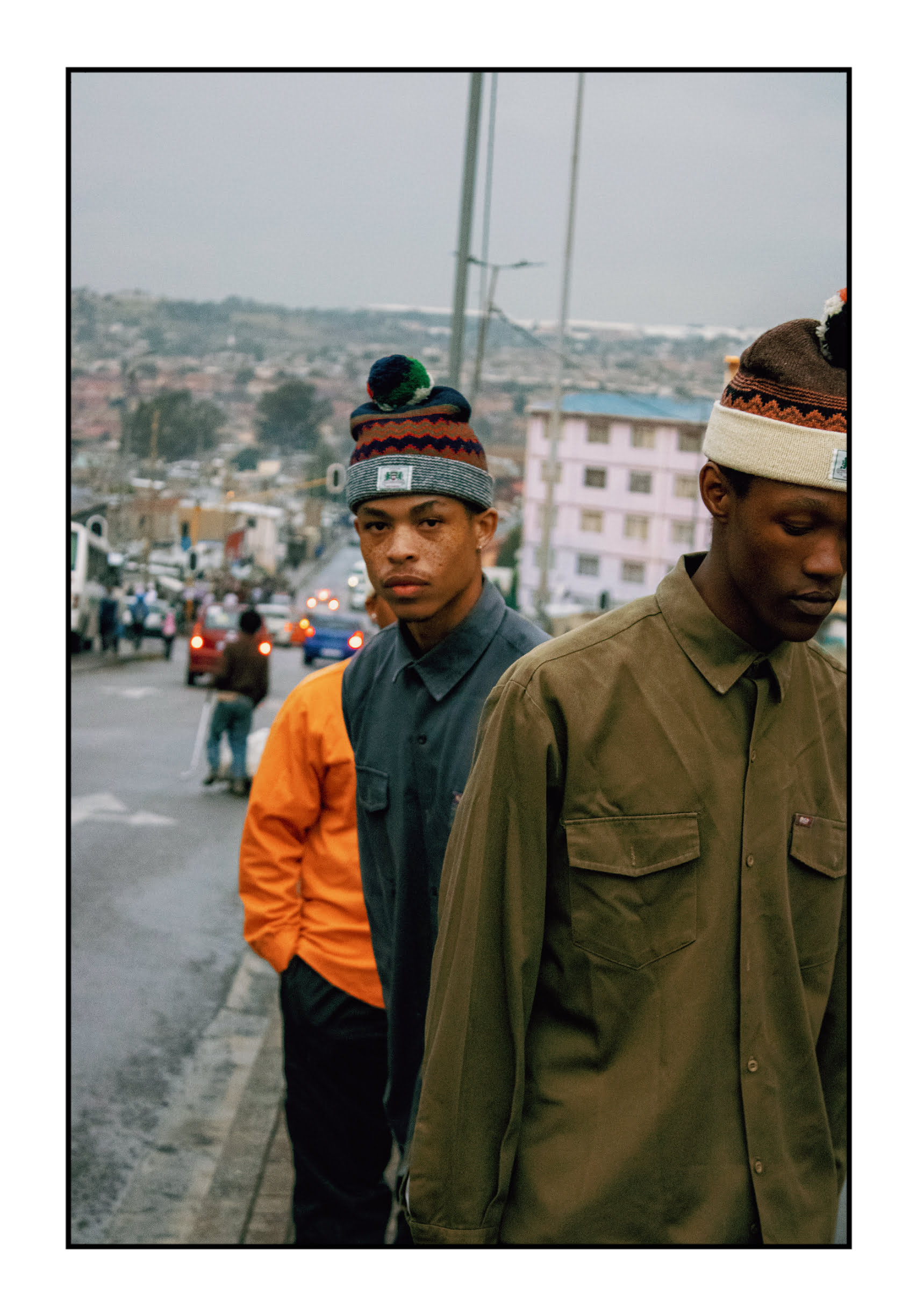
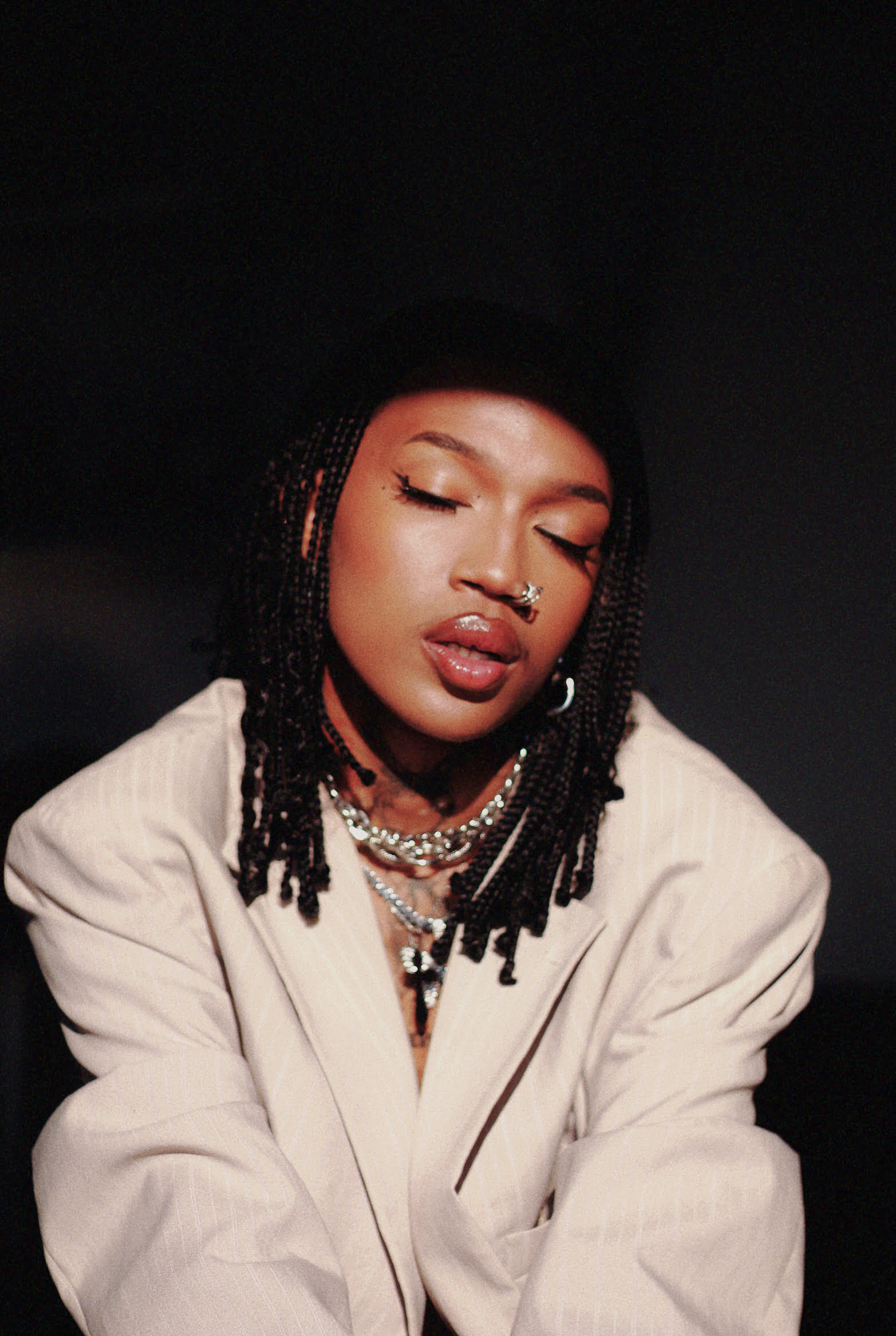



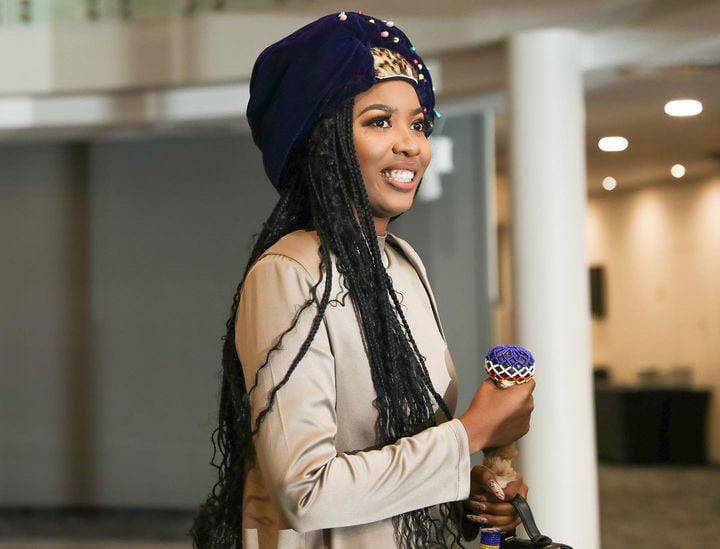
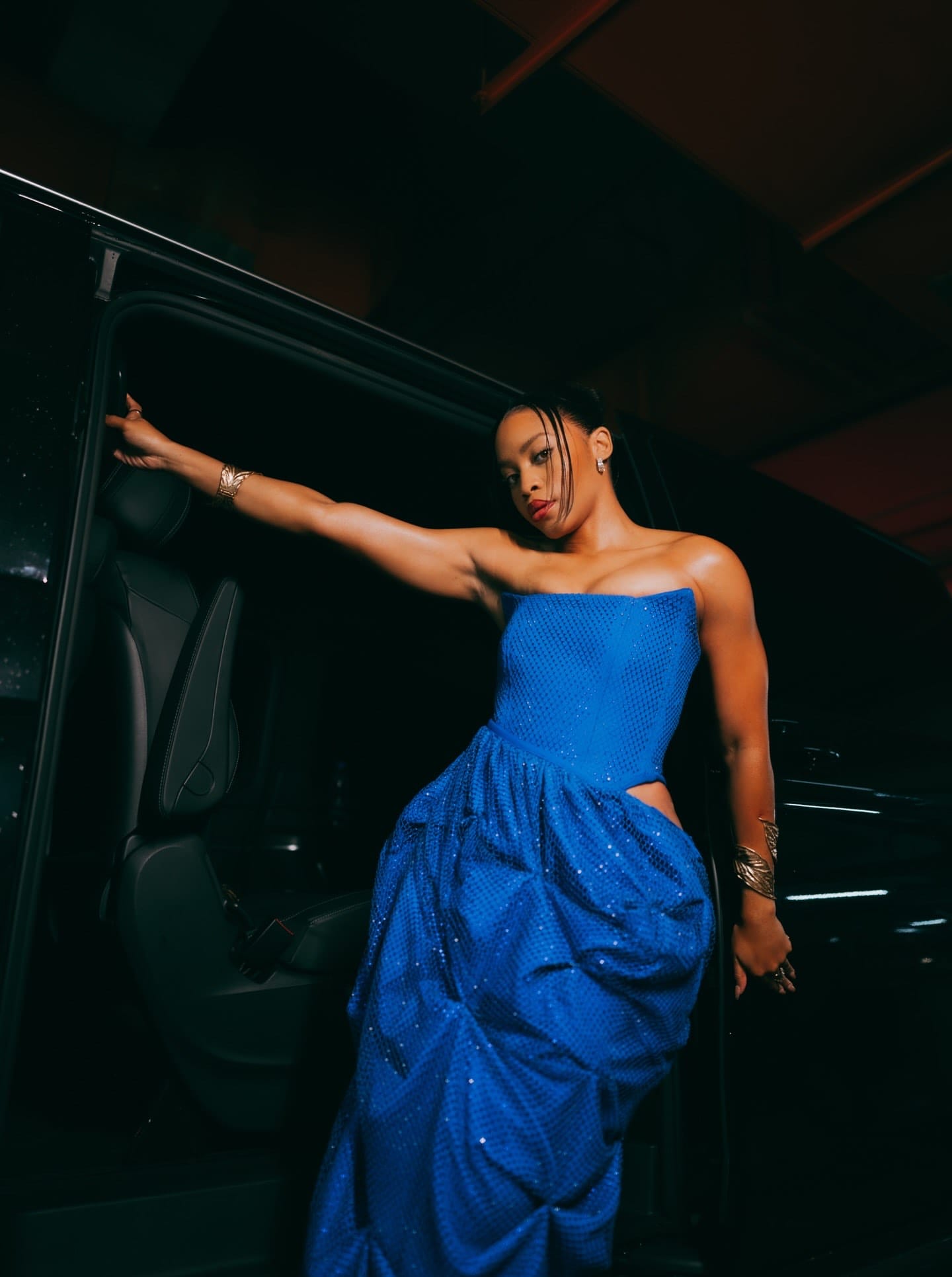

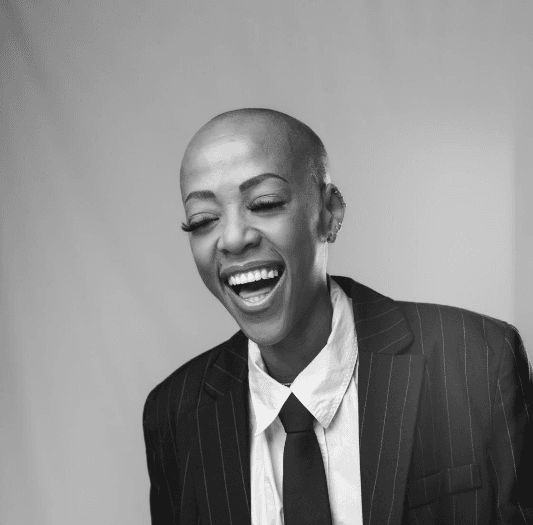
No Comments